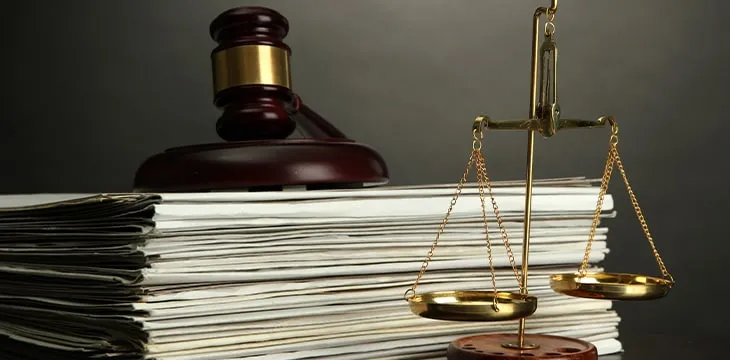|
Getting your Trinity Audio player ready...
|
A legal battle between the U.S. securities watchdog and San Francisco-based payments firm Ripple Labs has continued to heat up. In the latest twist, the Securities and Exchange Commission (SEC) has moved in court to stop a motion by Ripple executives to deny it access to their personal financial records.
The SEC had issued subpoenas to six banks that current and former CEOs, Brad Garlinghouse and Chris Larsen respectively, have been using since 2013. Ripple fought back, claiming the SEC was overreaching. “How much money they spend at the grocery store every week isn’t relevant to the securities lawsuit,” Ripple’s legal team countered.
Now, the SEC has responded in court to request that the court deny Ripple’s motion to quash the subpoenas. These documents directly relate to several elements the SEC is seeking to prove against the company, it claims.
Ripple has failed to prove why the SEC shouldn’t access the records, the watchdog argues. It stated in its motion, “The party resisting discovery must show why the requests are not proper and cannot do so with general and conclusory objections as to relevance, overbreadth, or burden.”
The watchdog further outlined the two reasons it needs access to the two executives’ financial records. First, it views these records as critical to the claims and defenses in the lawsuit.
“Bank records are the simplest and most reliable way to deanonymize Individual Defendants’ XRP transactions: they must eventually convert XRP into fiat currency that appears on their bank records, because XRP is not legal tender and is not universally accepted for goods and services,” it stated.
Second, the defendants can’t show the SEC’s request is improper. The Ripple execs cited the California state privacy rights in their defense. However, the SEC claims that they failed to show that this right is “a valid basis to quash a federal subpoena, and for good reason: that is not the law in federal court.”
In a hearing on March 19, the two factions continued their battle at the Southern District of New York before Magistrate Judge Sarah Netburn. Jorge Tenreiro, the SEC’s senior trial attorney dismissed Ripple’s argument that XRP was no different to Bitcoin and Ether.
“You are not like Bitcoin because you are one entity that has created these assets. That is fundamentally different,” Tenreiro told the defendants.
The attorney went on to question XRP’s utility. In addition, if Ripple has been trying to create use cases for its XRP token (as it has been doing with the likes of MoneyGram), then that proves the SEC’s case that the token is a security, he said.
Follow CoinGeek’s Crypto Crime Cartel series, which delves into the stream of groups-from BitMEX to Binance, Bitcoin.com, Blockstream, ShapeShift, Coinbase, Ripple and
Ethereum—who have co-opted the digital asset revolution and turned the industry into a minefield for naïve (and even experienced) players in the market.

 07-04-2025
07-04-2025 





